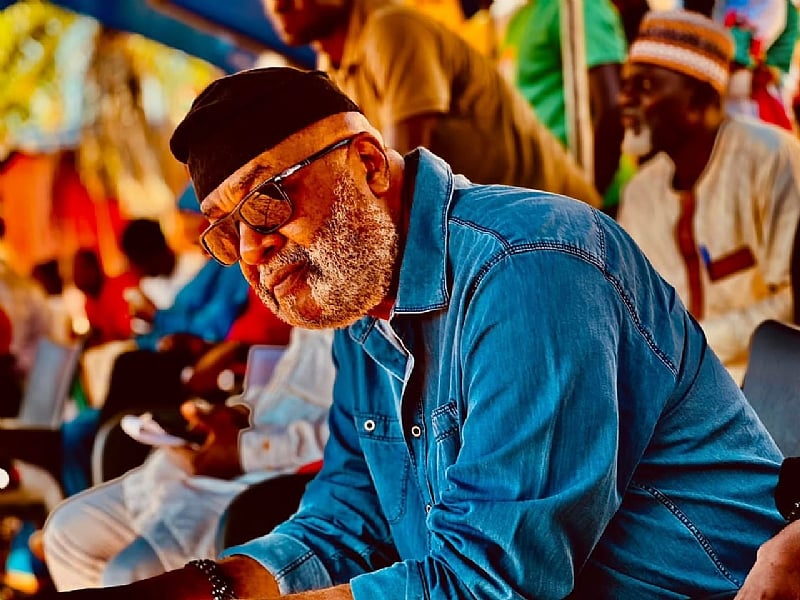The suspension of Chief Justice Gertrude Torkornoo has ignited a fiery political debate in Ghana, with the opposition New Patriotic Party (NPP) planning a demonstration against President John Dramani Mahama. This planned protest has drawn sharp criticism from prominent National Democratic Congress (NDC) figure and former Ghanaian Ambassador, Alhaji Said Sinare, who has labeled it a “hypocritical and politically bankrupt charade.” Sinare, a vocal supporter of the ruling NDC and Chairman of its Zongo Caucus Working Committee, accuses the NPP of blatant double standards, arguing that the party’s purported defense of judicial independence is a thinly veiled attempt to regain political relevance. He points to the NPP’s own alleged history of politicizing the judiciary during its time in power, claiming they appointed loyalists and manipulated judicial processes, thereby undermining the very independence they now claim to champion.
Sinare’s critique centers on the NPP’s alleged past actions, which he contrasts with their current stance. He argues that the NPP’s history of shielding corrupt officials and interfering with judicial processes disqualifies them from posing as defenders of judicial integrity. The former Member of Parliament for Ayawaso Central characterizes the planned demonstration as a politically motivated stunt designed to capitalize on the current situation rather than a genuine expression of concern for justice. He urges Ghanaians to recognize and reject these opportunistic tactics, emphasizing the NPP’s alleged focus on regaining power over a sincere commitment to the principles of justice and judicial independence. Sinare frames the NPP’s actions as a cynical ploy to manipulate public sentiment and exploit the situation for political gain.
Beyond his attack on the NPP, Sinare also directs criticism towards the suspended Chief Justice Torkornoo herself. He cites “questionable rulings, administrative opacity, and perceived partisan bias” as factors that have eroded public trust in her leadership. While acknowledging the seriousness of the situation, Sinare argues that the suspension of the Chief Justice should be a period of national reflection and not an opportunity for political grandstanding. He implies that Torkornoo’s own actions contributed to the current crisis and that the NPP is exploiting the situation for political gain, rather than addressing the underlying issues.
Sinare’s accusations against the NPP paint a picture of a party exploiting the situation for political expediency. He portrays the NPP as an organization more concerned with regaining power than with upholding the principles of justice and judicial independence. He contends that their sudden concern for judicial integrity is disingenuous, given their alleged past actions. This narrative seeks to discredit the NPP’s motives and portray them as opportunists rather than genuine advocates for judicial reform.
The former ambassador’s strong words reflect the deep political divisions within Ghana and the heightened tensions surrounding the suspension of the Chief Justice. His forceful condemnation of the NPP’s planned demonstration underscores the complex interplay of political maneuvering and judicial processes in the country. By characterizing the protest as a power grab, Sinare attempts to rally support for the NDC and portray the opposition as self-serving and insincere. He calls on the public to reject the NPP’s “misguided cause” and to see the demonstration for what he believes it is: a politically motivated attempt to exploit a sensitive situation.
In essence, Sinare’s message is a call for discernment and a rejection of what he perceives as political opportunism. He urges the public to look beyond the surface rhetoric and consider the NPP’s past actions when evaluating their current stance. He frames the debate not simply as a matter of judicial independence, but as a struggle against political manipulation and a battle for the soul of Ghanaian democracy. By highlighting the alleged hypocrisy of the NPP, Sinare aims to discredit their arguments and strengthen the NDC’s position in the ongoing political battle. He concludes with a stark warning, urging Ghanaians to avoid participating in what he considers a deceptive and potentially destructive political maneuver.














